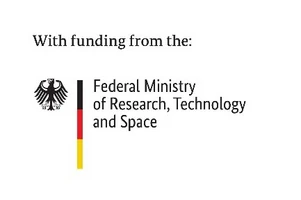The FunNPE project aims to implement circular bioeconomy strategies within industrial biotechnology research. To this end, a one-pot, two-product process is employed to sustainably convert the milling by-product wheat bran into natural enzyme mixtures for environmentally certified detergents and natural compounds for wound-care products using novel fungal strains.
The selection parameters in the screening process for non-conventional filamentous fungi are guided by industrial requirements for enzymes used in detergent applications. The focus lies on stability and high bioactivity under alkaline conditions at low temperatures. Selected fungal strains are fermented in a wheat-bran base medium, which is a by-product of flour production. The substrate is supplied in large quantities by the local associated partner, the Bavarian Millers’ Association (Bayerischer Müllerbund e. V., BMB).
Wheat bran consists predominantly of cellulose, hemicellulose, and lignin. During the growth phase, these complex polymers are hydrolysed by the natural enzymes released into the medium, such as cellulases, amylases, xylanases, pectinases, mannanases, arabinases, and proteases. The production process is optimized based on various parameters, including pH, temperature, and cultivation time. The products of the selected fungal strains are scaled up to 50 L in controlled (fed-) batch fermentations in order to achieve higher product yields and enable the transition to industrial production.
The experiments will be conducted using taxonomically verified fungal strains. Verification is achieved through both morphological and molecular biological methods, such as multi-omics approaches including hifi long-read sequencing (PacBio), in-house RNA sequencing, and various proteomic and metabolomic analytical techniques available at the Werner Siemens Chair (TUM-WSSB).
Personen:

